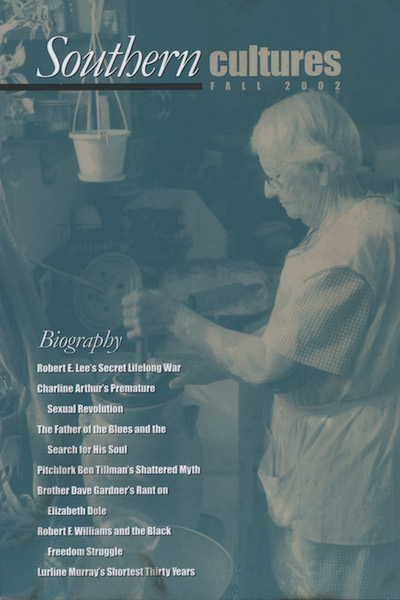“‘My idea of what constitutes music was changed by the sight of that silver money cascading around the splay feet of a Mississippi string band.'”
Composer of the best-selling “Memphis Blues” and “St. Louis Blues,” author of an autobiography titled Father of the Blues (1941), W. C. Handy (1873-1958) has a curious place in the history of American blues music. He was not, after all, a bluesman; he was a pre-jazz cornetist and bandleader, a skilled sight-reader and arranger who plied his trade on the Black minstrel-show circuit of the 1890s. Educated to be a schoolteacher, a member of Florence, Alabama’s, Black elite, Handy scandalized his family, at least at first, with his willful class descent into show business. “A box,” his father famously gasped when young William showed him a guitar he’d purchased with saved-up pennies. “A guitar! One of the devil’s playthings. Take it away. Take it away, I tell you. Get it out of your hands. Whatever possessed you to bring a sinful thing like that into our Christian home?” But scandalizing one’s family with socially retrograde behavior and earning professional and scholarly respect as a foundational blues figure are two different things. The Black press may have crowned Handy “Daddy of the Blues” as early as 1919, but his reputation has long been shadowed by the parallel charge that Handy was a Great Imposter. “Mr. Handy cannot prove anything in music that he has created,” fumed New Orleans jazz pioneer Jelly Roll Morton in an infamous open letter to Downbeat magazine after hearing Handy described in a 1938 Ripley’s Believe It or Not! radio broadcast as “the father of Jazz” as well as blues. “He has possibly taken advantage of some unprotected material that floats around. . . . [T]hese untruthful statements Mr. Handy has made, or caused you to make, will maybe cause him to be branded the most dastardly imposter in the history of music.” “Even to claim, or accept, the title Father of the Blues, as Handy has done,” wrote jazz historian Rudi Blesh in Shining Trumpets (1946), “is as absurd as it is presumptuous. . . . [Handy,] from the time of his youth [seems] to have been in the un-Negroid tradition . . . a tradition that has always aimed at ‘disinfecting’ Afro-American music by ‘Europeanizing’ it.” Literary critics, too, have had their dismissive say. Father of the Blues, argues Houston A. Baker, is “only a simplistic detailing of a progress, describing, as it were, the elevation of a ‘primitive’ folk ditty to the status of ‘art’ in America.” 1 W. C. Handy as an absurd, presumptuous, simplistic, dastardly impostor? Not since Papa Hemingway, perhaps, has an acknowledged cultural father-figure accumulated such a body of parricidal commentary.


